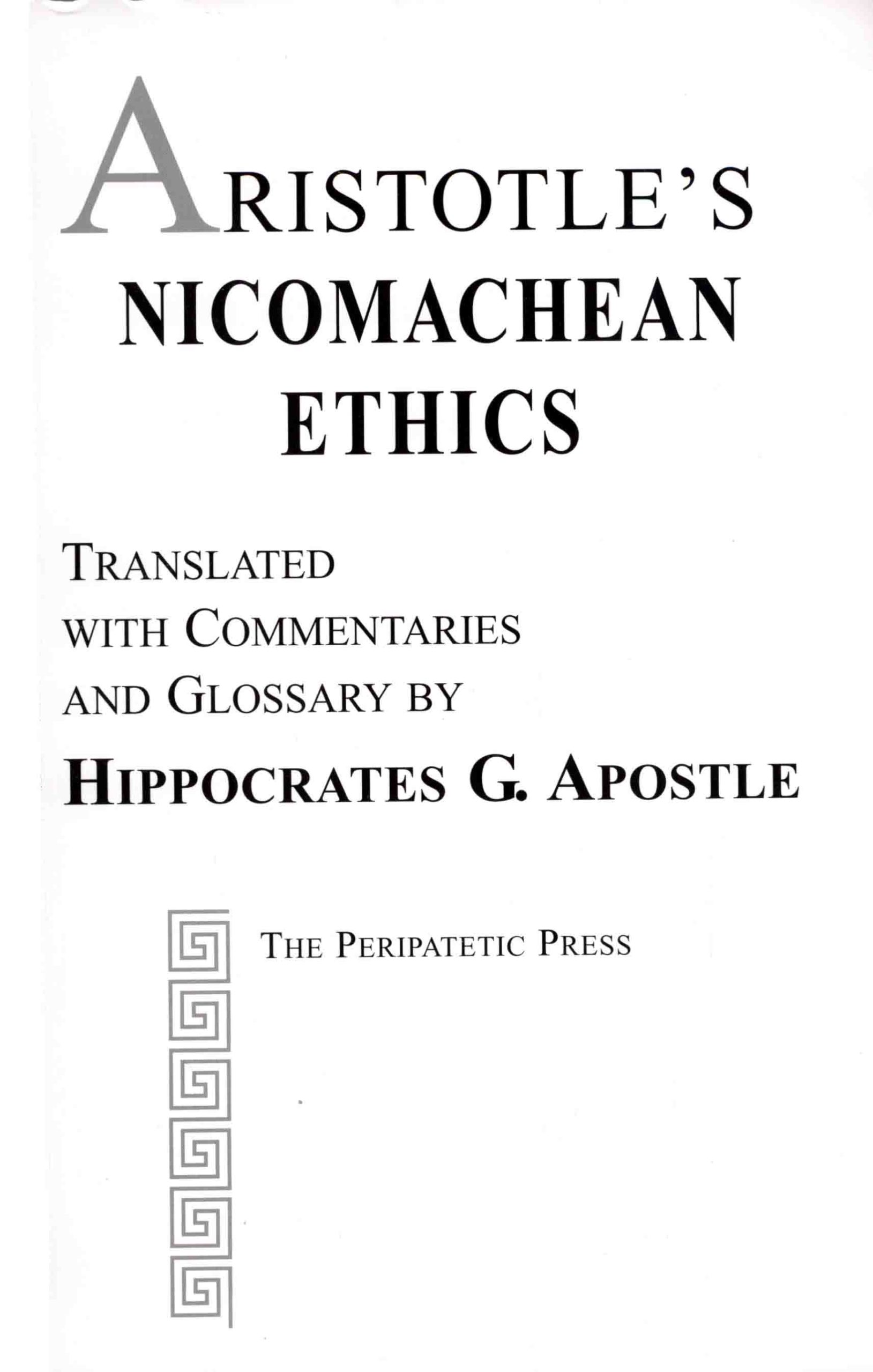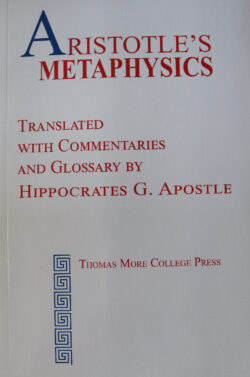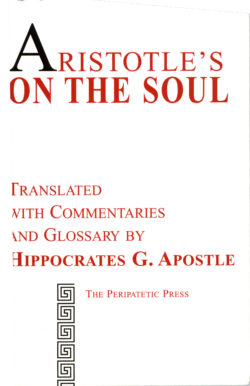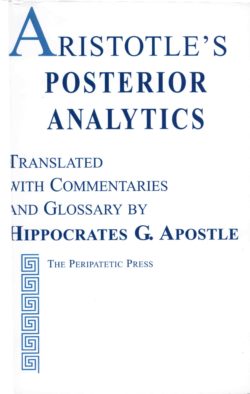The principles used in the translation of the Ethics are the same as those in the translations of the Physics and the Metaphysics, and their main function is to help the reader get Aristotle’s meaning as accurately as possible. Briefly, they are principles of terminology and of thought, some of which will be repeated here.
English terms common to all three translations have the same meanings, with a few exceptions, and many terms proper to ethics are added. Many of the terms in the Glossary are defined or are made known dialectically or in some other way. For the term προαίρεσις the term “intention” or the expression “deliberate choice” will be used instead of the term “choice,” but the definition will be the same as that given in the Physics and the Metaphysics. Difficulties arise from some allied terms or terms close in meaning, e.g., the terms φαΟλος, κακός, μοχθηρός, and πονηρός, for the exact differences of their meanings are not ascertainable from the extant works. Each of these terms, however, seems to be used consistently, and we shall assume such consistency. The choice of the corresponding English terms can only be suggested by the usage of the Greek terms and by induction. A Greek term, in some cases, has no English equivalent, and in such a case it is advisable to choose an English term whose ordinary meaning is closest to the meaning of the Greek term and to indicate the meaning given to that term.
To distinguish in printed form an expression, whether vocal or written, or a thought from what it signifies, we enclose it within quotation marks. For example, “bravery” is a term or a concept and is not a virtue, but that which it signifies is bravery, which is a virtue. Expressions in Greek are not enclosed by quotation marks, for this is not necessary.
Terms in italics with initial capital letters signify principles posited by philosophers other than Aristotle. For example, the One and the Good are principles posited by Plato, and Anaximenes posits Air as the principle of simple bodies. Terms in italics without initial capital letters are used (a) sometimes for emphasis, and (b) sometimes with meanings which are somewhat different from—usually narrower than—those of the same terms without italics. For example, the terms “desire” and “desire” differ in meaning, and the second is a species of the first; the meanings of such terms are given in the Glossary. Expressions appearing in brackets are added for the sake of the reader and are not translations from the Greek.
In the margins of the translation we have inserted the pages and lines of the Bekker text, which are standard. The various works of Aristotle and the Bekker pages containing each of them are listed at the beginning of the Commentaries.
The form of government which Aristotle calls δημοκρατία is a deviation or perversion of what he calls τιμοκρατία or πολιτεία, for (a) it aims not at the common good but at that of the majority or of those without property, (b) it is based not on merit but on indiscriminate freedom and equality, and (c) it differs from what Aristotle calls πολιτεία by tending to be a government by vote rather than by law. It is usually translated as “democracy,” but this is misleading; for (a), (b), and (c) are not attributes of what we mean by “democracy.” English terms whose meanings come close to this form of government are “ochlocracy,” “people’s rule,” “people’s state,” and even “people’s dictatorship.” The terms τιμοκρατία and πολιταα will be translated as “timocracy” and “democracy,” respectively.
Students who wish to acquire the thought of Aristotle accurately should make full use of the Glossary, for if one does not grasp the meanings of the terms, one may be faced with apparent inconsistencies and falsities, which lead to unfair criticism. For example, the expressions “to act justly,” “to do what is just,” “to act from justice,” and “to be just” have been given different meanings, and the use of four different allied expressions in English is necessary if we are to translate accurately the four corresponding Greek expressions to which Aristotle assigns different meanings.
I am grateful to the National Endowment for the Humanities for providing me with freedom from academic duties during the academic year 1968–9 when the translations of the Ethics and the Posterior Analytics were started; to Professor John M. Crossett, who read the entire manuscript and made numerous corrections and suggestions; to Professor Evangelos P. Papanoutsos, who clarified a number of passages in the Ethics; to Professor Norman Kretzmann, for suggesting certain key terms in the translation; and to Mr. and Mrs. Harry Fulton, Mr. Lloyd Gerson, Miss Janet E. Smith, Miss Susan J. Ashbrook, and Miss Ellen F. Pill, for their secretarial and other assistance.
H.G.A
Grinnell College



